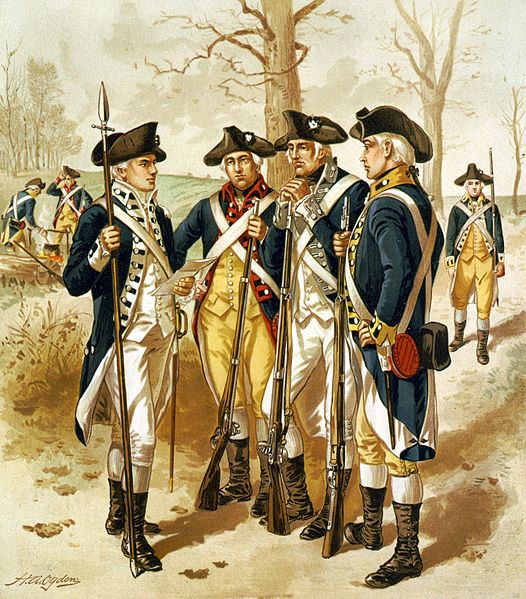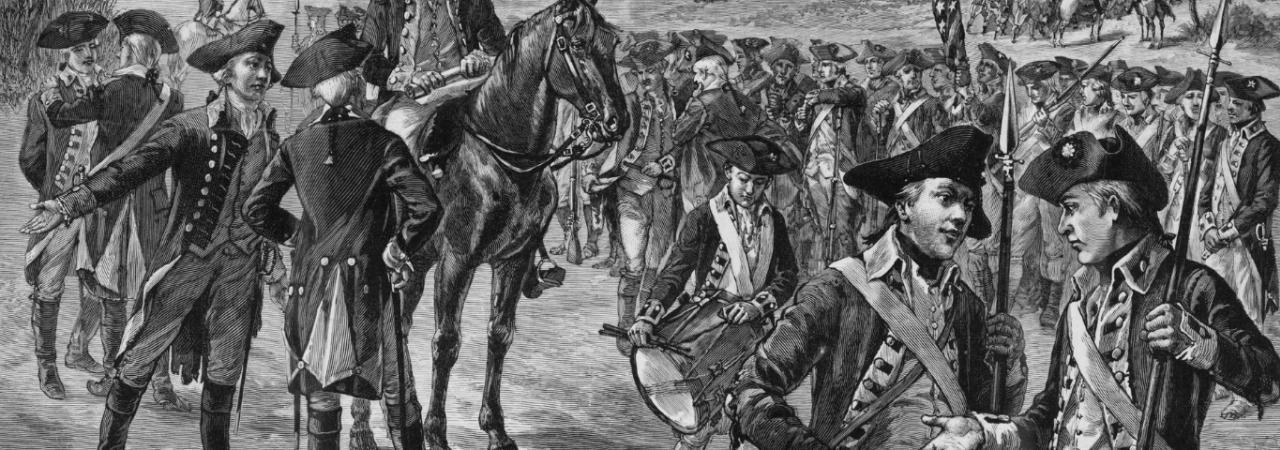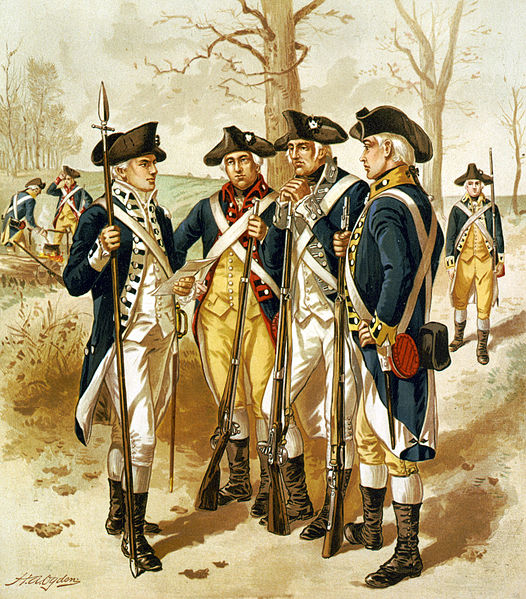In the bitter winter of 1783, America stood on the precipice of potential disaster. The Revolutionary War had ended, but a more insidious threat loomed – a potential military coup that could have destroyed the fragile young nation before it truly began.

Continental Army soldiers during the crucial period of 1779-1783. Credit: World History Encyclopedia
The Continental Army was a powder keg of frustration. Soldiers and officers had fought tirelessly for independence, yet they remained unpaid and desperate. Years of sacrifice had left many military men impoverished, their promises of compensation seemingly forgotten by a weak Congress struggling under the Articles of Confederation. Economic hardships bit deep, and resentment began to simmer among the military ranks.
At the heart of this brewing storm was a group of officers who began to contemplate a radical solution. Frustrated by years of financial neglect, they drafted a memorandum that hinted at military intervention. The plan was dangerous – potentially replacing the civilian government with a military-led administration that would address their grievances.

The historic disbanding of the Continental Army. Credit: American Battlefield Trust
Enter George Washington, a leader whose moral authority would become the turning point of this potential crisis. On March 15, 1783, he addressed the assembled officers at Newburgh, Pennsylvania. With carefully chosen words and profound emotional intelligence, Washington dismantled the conspiracy not through force, but through powerful persuasion.
In a moment of extraordinary leadership, Washington spoke directly to the hearts of his fellow soldiers. He reminded them of their noble struggle for liberty, appealing to their sense of honor and the principles they had fought to establish. When he pulled out a letter to read, his hands trembled – a rare moment of vulnerability that spoke volumes about the weight of the moment.
The officers, many of whom had followed Washington through years of brutal conflict, were moved. His speech transformed potential rebellion into a reaffirmation of democratic ideals. By choosing principle over personal power, Washington demonstrated that the military would remain subordinate to civilian leadership – a radical concept in a world typically dominated by military strongmen.
This pivotal moment became a cornerstone of American democratic tradition. The Newburgh Conspiracy was averted not through military might, but through moral leadership and a commitment to the ideals of the Revolution. Washington proved that principled leadership could overcome institutional weakness and personal frustration.
The resolution of the Newburgh Conspiracy taught a profound lesson: democracy is fragile and requires constant nurturing. It showed that individual integrity could protect national institutions, preventing the very authoritarianism the Revolution had fought to overthrow.
Today, the Newburgh Conspiracy stands as a testament to the delicate balance between military power and civilian governance – a lesson as relevant now as it was in 1783.
Categories: American History, Leadership, Military History, Political History, Revolutionary War, War History
Tags: American Revolution, Continental Army, Democracy, George Washington, Leadership, Military History, Newburgh Conspiracy
Religion: Not applicable
Country of Origin: United States
Topic: American Revolutionary War
Ethnicity: Not Applicable


